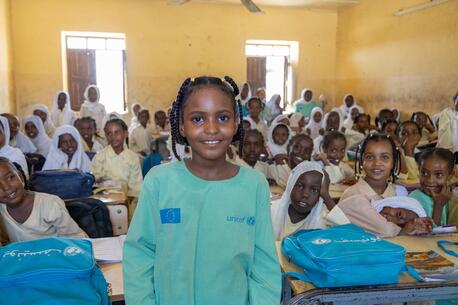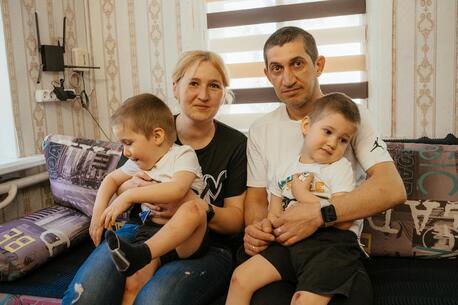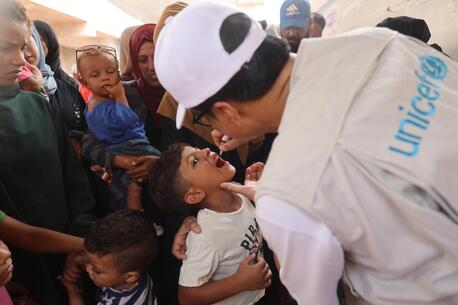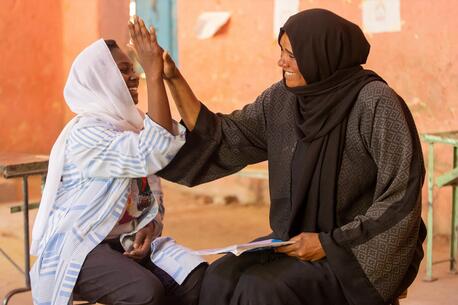
Starting Over in Sudan, With Support From UNICEF
One year ago, civil war broke out in Khartoum, pushing children and families out of their homes and into chaos. UNICEF safe learning spaces are helping children like 15-year-old Walaa recover from the trauma they've experienced.
As Sudan's brutal civil war moves into its second year, UNICEF is helping children rebuild their lives
Walaa once dreamed of a brighter future, relishing happy moments with her friends. But when civil war erupted in Sudan on April 15, 2023, her life took a devastating turn. On that fateful day, Walaa and her family found themselves trapped in their home in Khartoum.
Before the war, they led a peaceful life together, but now they struggled to find safety, food and water. They rationed their supplies and prayed for the bombardment to stop. Tragedy struck when a neighboring house was bombed, killing everyone inside. Gripped by fear and panic, Walaa and her family scattered in different directions.
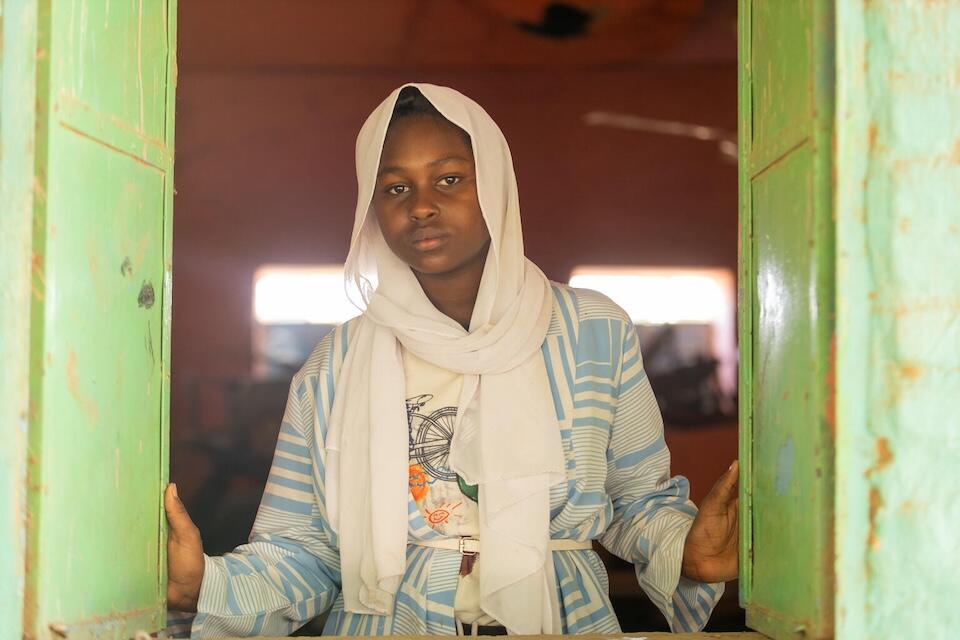
Separated from their family, Walaa and her sister walked for days in search of safety
In the chaos, Walaa and her sister Shegn became separated from the rest of family, and were forced to fend for themselves. Following the path of other fleeing families, the sisters embarked on a harrowing four-day journey, with no clue of where they would end up. They travelled for miles under the scorching sun, their feet bare, until they reached Al-Faw, a town bordering Gezira state. Images of decomposing bodies and damaged buildings continue to haunt the two young girls.
"It is difficult to forget the sight of all those lifeless bodies and the sight of fluids flowing from them," recalls Walaa. Amidst their prayers for safety, they clung to hope of reuniting with their family.
"We were very thirsty and drank contaminated water ... I was terrified. All I wanted was to find my mother.” — Walaa, 15
Days and nights passed on the streets of Al-Faw, with no clothes, water or food. Yet the kindness of other displaced families sustained them. It was this same support system that eventually helped the sisters reconnect with their mother through a telephone call. After five long days of waiting, Walaa and her sister were finally reunited with their mother.
The moment of their reunion was filled with overwhelming joy and relief. “I was overjoyed when I saw her. I hugged her so tightly and we cried together,” Walaa remembers.
Together, they embarked on a search for a safer haven far from the ravages of the war. Their journey led them to Madani and eventually to Kassala state, where they now reside.
Despite the joy of being reunited with her mother, Walaa still carries the scars of separation and the emotional burden of their ordeal. “I used to cry a lot," she admits.
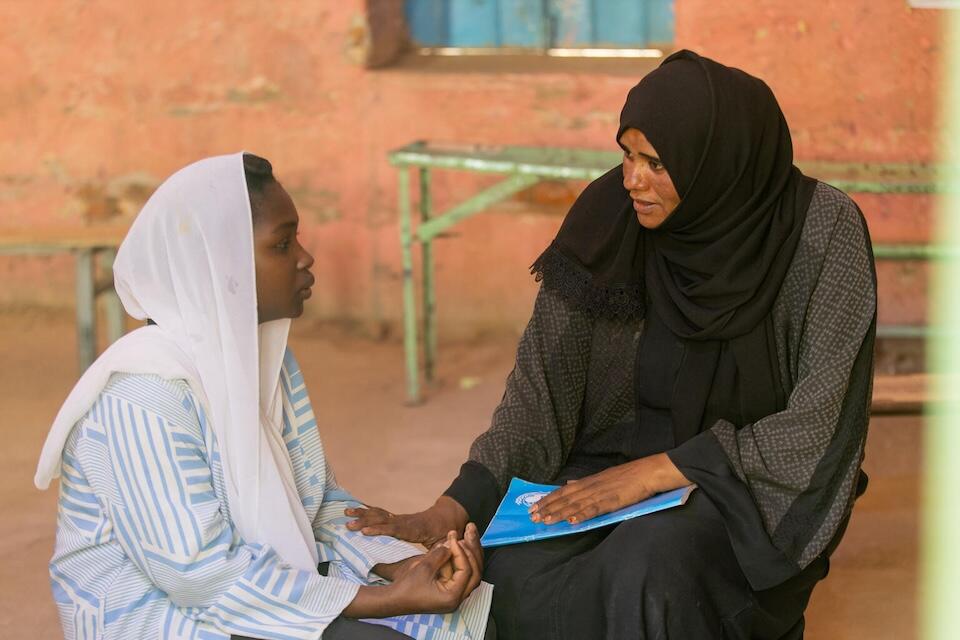
Starting a new life
In a city where she has no roots, Walaa grapples with uncertainty, but her mother’s encouragement keeps her going. She struggled to adjust until she discovered the UNICEF-supported Alshargia safe learning space, also known as a Makanna, which means ‘my space' in Arabic. Here, some 600 children from displaced and host communities find refuge every day.
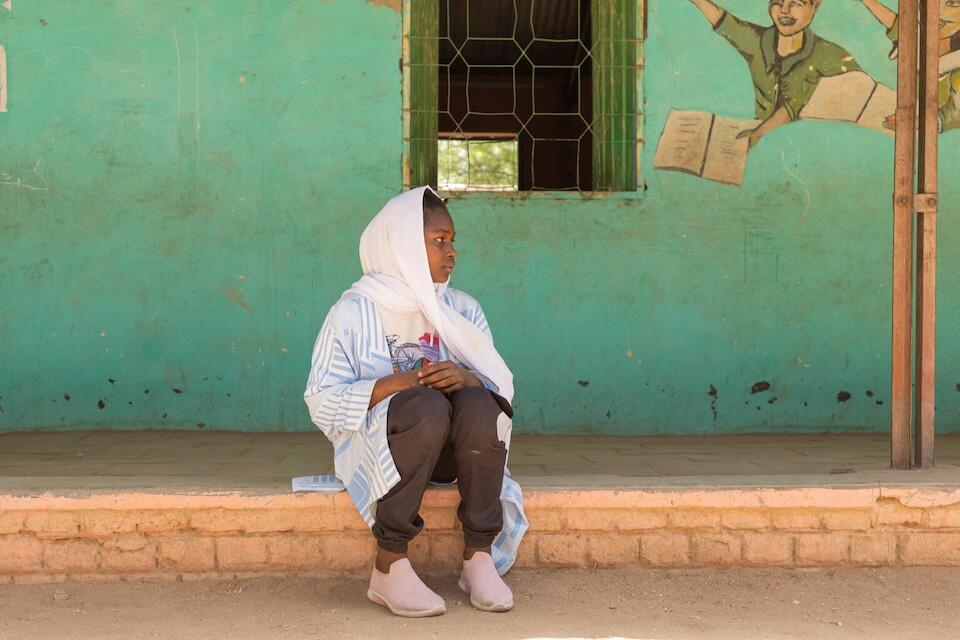
A sanctuary for children
For Walaa, and the other children, the Makanna has become a sanctuary, offering integrated services like play, music, dancing, structured learning, digital learning, psychosocial and mental health support, clean water and much more.
“I want to come to this place to heal and get rid of the memories of the war. I have become strong, and I am laughing more.”
Noha, a dedicated counselor trained by UNICEF, guides Walaa through the journey of healing. As a displaced person herself, Noha understands the children’s suffering and empathizes deeply with their trauma.
"When the children first arrived, they were tense and stressed," says Noha. "They didn't initially participate in any activities. However with time, they gradually began to engage and now spend most of their time here."
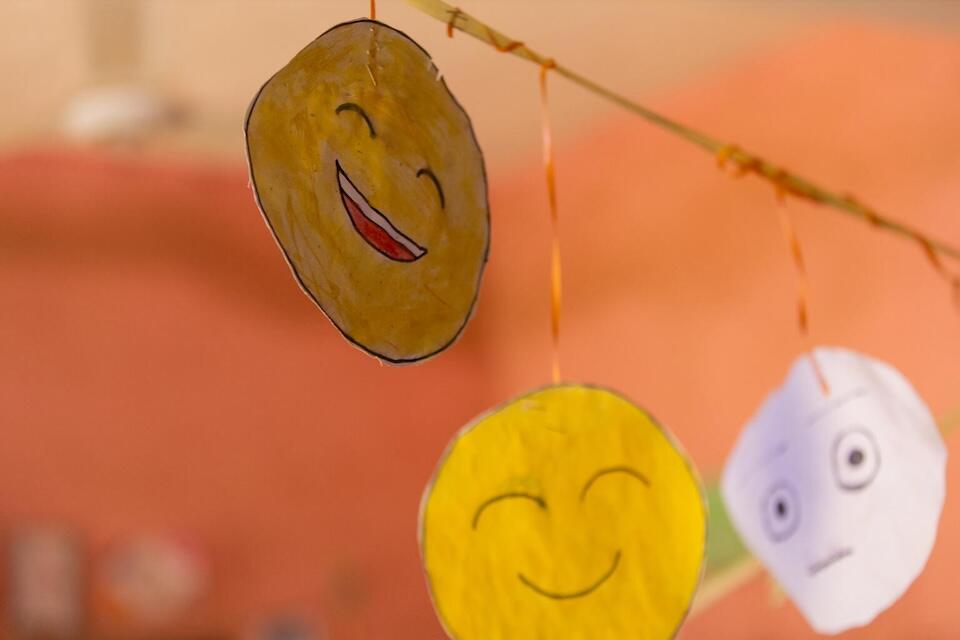
Through individual counseling sessions, Noha helps Walaa navigate her trauma, offering a safe space for her to express her fears and dreams. Together, they journey through moments of darkness and light, finding solace in each other’s company.
"I find peace and comfort when I come to the Makanna. It helps me forget my sadness and embrace a new beginning,” says Walaa.
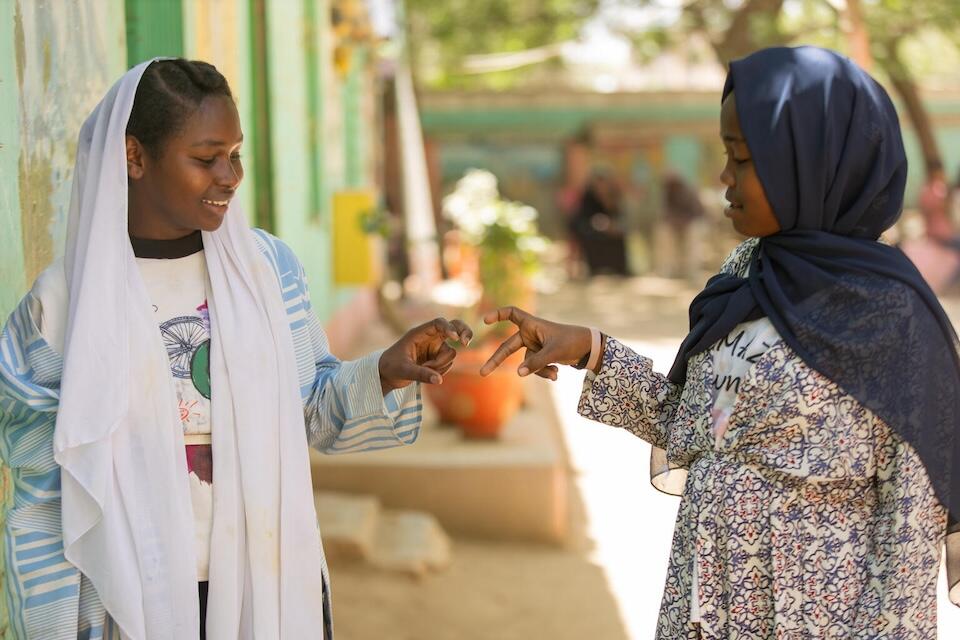
A plea for peace
Hundreds of children like Walaa receive professional support at the Makanna from social workers and psychologists trained in mental health and psychosocial support by Jasmeer, UNICEF's implementing partner.
Walaa continues to receive support and looks forward to resuming her studies so that one day, she can become an engineer or doctor. She knows that this can only happen if the war ends.
“Please stop the war. There are people who have died and haven’t been buried and those that are still missing and separated like I was. We have been humiliated. We want to return to our homes. What I miss the most is my English lessons.”
The impact of one year of war, displacement and deprivation on Sudan’s 24 million children is devastating. Without urgent action and additional resources, the country risks a generational catastrophe that will have grave implications for the country, the region and beyond. Above all, Sudan’s children need a ceasefire.
Wherever and whenever children are caught in crisis, UNICEF is there to help. Your contribution can make a difference. Donate today.
This story was originally published on unicef.org
HOW TO HELP
There are many ways to make a difference
War, famine, poverty, natural disasters — threats to the world's children keep coming. But UNICEF won't stop working to keep children healthy and safe.
UNICEF works in over 190 countries and territories — more places than any other children's organization. UNICEF has the world's largest humanitarian warehouse and, when disaster strikes, can get supplies almost anywhere within 72 hours. Constantly innovating, always advocating for a better world for children, UNICEF works to ensure that every child can grow up healthy, educated, protected and respected.
Would you like to help give all children the opportunity to reach their full potential? There are many ways to get involved.



